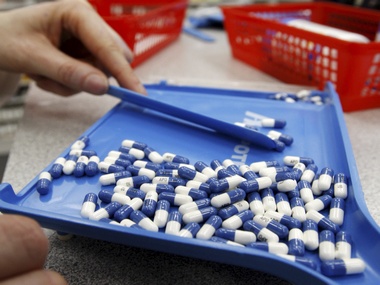It was only a matter of time before the “foreigners will do bad things if we let them enter” cry went up in the Indian pharmaceutical industry.
The ministry of health recently urged the government to consider imposing limits on foreign direct investments (FDI) on the pharmaceutical industry over concerns that a spate of takeovers of Indian companies by foreign firms will raise the price of healthcare for ordinary Indians. Currently, FDI up to 100 percent gets automatic approval; the ministry is asking for a 49 percent cap.
However, a high-level government committee headed by Planning Commission member Arun Maira concluded that no changes were required in the sector’s FDI policy; instead, it recommended strengthening the hand of the Competition Commission of India to vet all mergers and acquisitions.
[caption id=“attachment_94787” align=“alignleft” width=“380” caption=“There are concerns that a spate of takeovers of Indian companies by foreign firms will raise the price of healthcare for ordinary Indians. Reuters”]  [/caption]
However, the issue is far from resolved. Opinion on this issue remains deeply divided: on the one hand, India has been trying to position itself as a outsourcing hub for manufacturing and drug research, so some experts argue imposing caps on FDI at a time when the country desperately needs funds across sectors to revive slowing growth could send out a wrong message to foreign investors.
The opposing side believes that it is actually time for the drug industry to turn more protective if it wants to withstand the increasing onslaught of giant multinationals, which explains the need for a cap.The argument is that multinationals could come in and swallow some of the top names in the Indian drugs industry and we could then lose our industry to foreigners.
“The multinationals have only recently started to show interest in this market,” said an analyst at a foreign brokerage. “In 10 years, they could be ruling this market completely and manipulating it any way they want.”
He also pointed out that manufacturers of cheaper versions of patented products made by foreign companies - something the Indian industry is renowned for - could be driven out of business if they were taken over. Foreign companies currently control about 20-25 percent of the Indian drug market.
Supporters of the no-caps-FDI dismiss that claim, pointing out that the Indian pharmaceuticals market is intensely competitive and too fragmented to come under the grip of one giant foreign company. For now, that’s a fact: competition is so high that growth rates of several domestic-market-serving companies are actually slowing down.
A media report noted that large local companies are currently being made to work hard for their money as smaller, unlisted companies undercut them with far cheaper prices and trade discounts in the acute therapy segment, which accounts for 75 percent of the industry’s annual sales of Rs 57,000 crore.
The acute therapy segment consists of treatments like antibiotics and painkillers for short-term ailments such as cough and cold. In this competitive environment, multinational companies are looking at expanding their Indian operations very aggressively. “In some products which are not core to their business, they are entering with extremely competitive pricing versus Indian companies,” noted an Emkay Research sector report.
“In a bid to increase their presence in some of the branded generics, multinational corporations have aggressively priced their products below their Indian counterparts. While this has not significantly dented market share, it is a precursor to the competitive intensity in future,” the report added.
It’s the shape of that future that is dividing industry observers. At stake is a market with huge potential - much higher than what multinational companies can hope for in their own saturated home markets.
India is likely to emerge as one of the top five pharmaceutical markets in the world by 2020, with an estimated value of $275 billion, according to a study by Ikon Marketing Consultants. Indian consumers spend about 1 percent of their total incomes on drugs and pharmaceuticals. With a rise in per capita income, that spending is tipped to triple in absolute terms by 2020.
No wonder, everyone wants to get in on the action. According to one estimate, up to $9 billion might have been poured into the sector in the past 11 years, 50 percent of which happened via mergers and acquisitions. Indeed, since 2006, a spate of foreign takeovers have taken place in the sector.
For sure, with healthcare spend in the country on the upswing, expect the debate to pick up pace.


)
)
)
)
)
)
)
)
)



